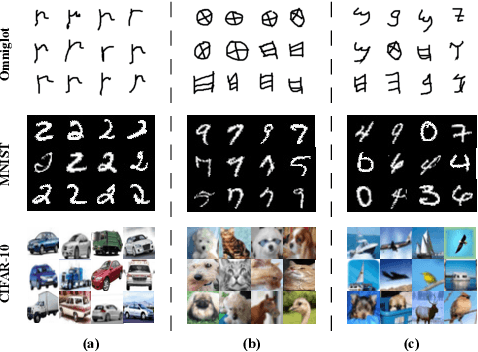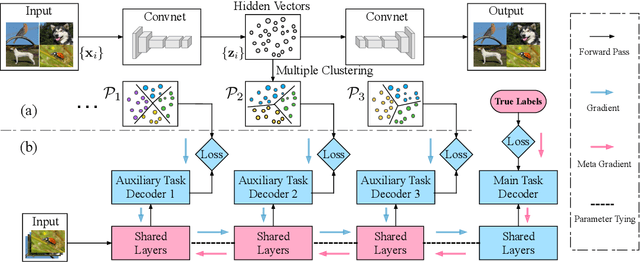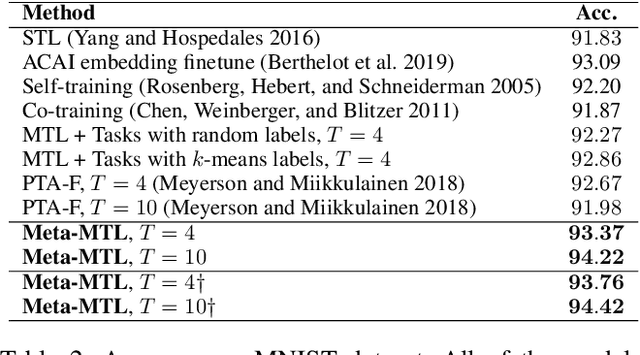Constructing Multiple Tasks for Augmentation: Improving Neural Image Classification With K-means Features
Paper and Code
Nov 18, 2019



Multi-task learning (MTL) has received considerable attention, and numerous deep learning applications benefit from MTL with multiple objectives. However, constructing multiple related tasks is difficult, and sometimes only a single task is available for training in a dataset. To tackle this problem, we explored the idea of using unsupervised clustering to construct a variety of auxiliary tasks from unlabeled data or existing labeled data. We found that some of these newly constructed tasks could exhibit semantic meanings corresponding to certain human-specific attributes, but some were non-ideal. In order to effectively reduce the impact of non-ideal auxiliary tasks on the main task, we further proposed a novel meta-learning-based multi-task learning approach, which trained the shared hidden layers on auxiliary tasks, while the meta-optimization objective was to minimize the loss on the main task, ensuring that the optimizing direction led to an improvement on the main task. Experimental results across five image datasets demonstrated that the proposed method significantly outperformed existing single task learning, semi-supervised learning, and some data augmentation methods, including an improvement of more than 9% on the Omniglot dataset.
 Add to Chrome
Add to Chrome Add to Firefox
Add to Firefox Add to Edge
Add to Edge